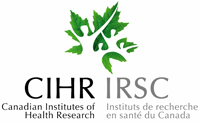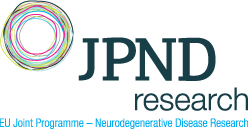



NeuroGEM: Identification of genes that commonly modulate the severity of neurodegenerative diseases
National funding organisations: CIHR (Canada), BMBF (Germany), ZonMw (Nederlands), RCN (Norway)
2015-2018
![]()
![]()
![]()
![]()
Coordinator:
Jörg A. Gsponer, University of British Columbia (UBC), Center for High-Throughput Biology (ChiBi), Vancouver, Canada
Partners:
Jens Pahnke, University of Oslo (UiO), Norway
Olaf Riess, University of Tübingen, Germany
Eleonora Aronica, Academisch Medisch Centrum (AMC), Amsterdam, The Netherlands
Paul Pavlidis, University of British Columbia (UBC), ChiBi, Vancouver, Canada
Collaborators:
David Rubinsztein, University of Cambridge, United Kingdom
Dokyun Na, Chung-Ang University , Seoul, Republic of Korea
Sovan Sarkar, Whitehead Institute for Biomedical Research (MIT), USA
Marius Ueffing, University of Tübingen, Germany
Joel Glover, Norwegian Stem Cell Center, Oslo, Norway
Abstract:
The deposition of intra- and extracellular protein deposits is a feature common to many neurodegenerative diseases (NDs). Alzheimer’s disease (AD), Parkinson’s disease (PD)/Lewy body dementia (LBD), and Spinocerebellar Ataxia type 3 (SCA3) are part of this group of diseases. We hypothesize that there exist genes that when altered in sequence or expression increase the risk of developing any type of ND or modify their age at onset (AAO). Such genes may play a key role in the development of many of the idiopathic forms of these diseases and, thereby, be as relevant for NDs as p53 is for cancer. Our primary aim is to identify generic modifiers of NDs by performing comprehensive bioinformatics analyses of modifiers identified previously in targeted human and rodent studies, including high confidence genome-wide association studies (GWAS), as well as in genetic screens in lower organisms such as yeast or Drosophila. In addition, integration of the data from previous screens with proteomic and genomic information in disease-network models will then identify possible novel generic modifiers. Predicted generic modifiers will be validated first with the help of the analysis of expression profiles and RNAseq data. Selected modifiers will then be further validated and characterized in vitro in mammalian cell models of AD, PD and SCA3. Finally, we will confirm the effect of a few top-ranked modifiers, for which mechanistic studies have provided evidence of their mode of action, in neurons derived from induced pluripotent stem cells (iPSCs), in transgene disease rodent models and investigate whether the product of these modifier genes display significant alterations in human brain tissue of autopsy-confirmed AD, PD, and SCA3 patients.
As generic modifiers and the components of the pathways that they affect will point to potential therapeutic targets for a wide range of degenerative diseases, the results of this research will allow prioritisation of targets for future drug screens and genomic studies.
Resources / Links:
Gsponer lab – NeuroGem database 
Pavlidis lab – Phenocarta database ![]()
Pavlidis lab – Gemma database 
